11 Best Herbal Creams For Cold Sore
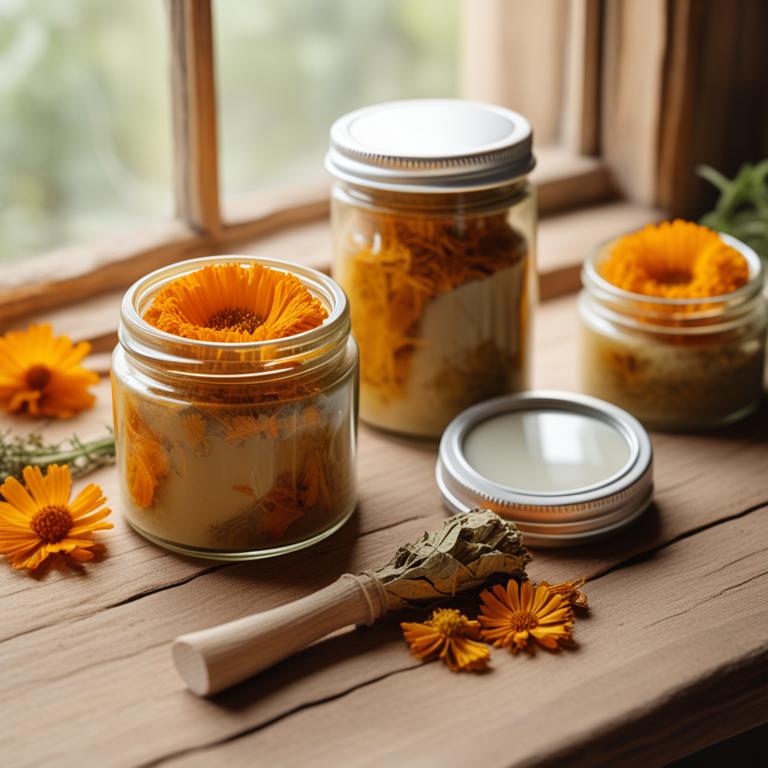
Herbal creams for cold sore are topical creams or ointments that contain plant-based ingredients to help alleviate the symptoms and reduce the healing time of cold sores.
These creams work by reducing inflammation, promoting healing, and soothing the skin, making them an effective alternative to antiviral medications.
Some popular examples of herbal creams for cold sore include Aloe vera, which has anti-inflammatory properties to reduce redness and swelling, Tea tree oil, which has antimicrobial properties to prevent infection, and Chamomile, which has anti-inflammatory and soothing properties to calm the skin.
Additionally, other herbal creams such as Licorice root, Echinacea, and Calendula have also been used to treat cold sores due to their anti-inflammatory and antiviral properties, making them a popular choice for those looking for a natural remedy.
According to "Journal of applied biomedicine", creams for cold sore may benefit from the use of acetonic extracts from plants such as rosemary and licorice, which have been shown to have antimicrobial properties against multi-drug resistant pathogens.
Below there's a list of the 11 best herbal creams for cold sore.
- 1. Melaleuca alternifolia creams
- 2. Aloe barbadensis creams
- 3. Echinacea purpurea creams
- 4. Echinacea angustifolia creams
- 5. Borago officinalis creams
- 6. Symphytum officinale creams
- 7. Hypericum perforatum creams
- 8. Calendula officinalis creams
- 9. Achillea millefolium creams
- 10. Centella asiatica creams
- 11. Cinchona officinalis creams
Also you may be interested in...
TODAY'S FREE BOUNDLE
Herb Drying Checklist + Herbal Tea Shopping List + Medicinal Herbs Flashcards
Enter you best email address below to receive this bundle (3 product valued $19.95) for FREE + exclusive access to The Aphotecary Letter.
$19.95 -> $0.00
1. Melaleuca alternifolia creams
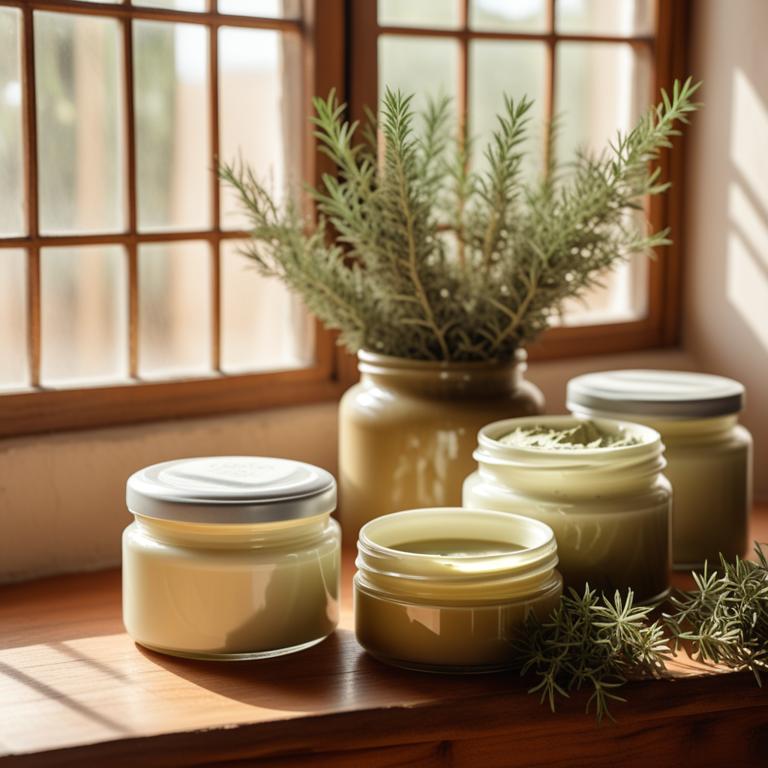
Melaleuca alternifolia creams, derived from the leaves of the tea tree, have been found to be effective in treating cold sore ailments due to their antimicrobial and anti-inflammatory properties.
The terpinen-4-ol and cineole present in these creams help to reduce the severity and duration of cold sore outbreaks by inhibiting the replication of the herpes simplex virus and alleviating symptoms such as pain and inflammation.
The bioactive constituents, including eucalyptol and alpha-pinene, work synergistically to promote wound healing and reduce the risk of secondary infections.
Regular application of Melaleuca alternifolia creams can provide relief from cold sore symptoms and help to reduce the frequency of recurrence, making it a popular natural remedy for this common skin condition.
Related Study
According to the scientific study, Melaleuca alternifolia creams for cold sore would have beneficial effects due to the antiviral activity of tea tree (Melaleuca alternifolia) oil against skin infections such as herpes.
2. Aloe barbadensis creams
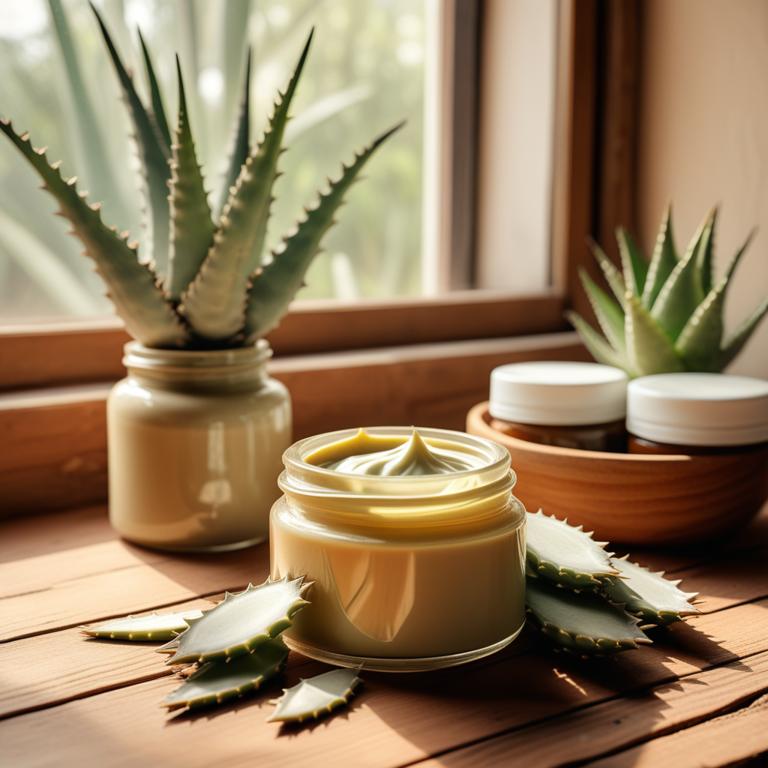
Aloe barbadensis creams have been traditionally used to treat cold sore ailments due to their anti-inflammatory and soothing properties.
This herbal preparation helps to treat cold sores by reducing redness, swelling, and pain associated with the ailment.
The bioactive constituents, including aloin, aloe-emodin, and vitamins A, C, and E, in Aloe barbadensis creams have been shown to inhibit the replication of the herpes simplex virus, thereby reducing the severity and duration of cold sore outbreaks.
The benefits of using Aloe barbadensis creams to treat cold sores include rapid healing, reduced discomfort, and prevention of scarring, making it a popular natural remedy among those seeking a chemical-free solution.
Related Study
According to "Brazilian journal of biology = Revista brasleira de biologia", Aloe barbadensis creams for cold sore may not have been specifically studied, but the Aloe vera extract has been shown to accelerate wound healing by promoting proliferation and cell migration of human skin fibroblasts and keratinocytes, and also has antioxidant effects that could potentially benefit the healing process, although further clinical trials are suggested for further conclusions.
3. Echinacea purpurea creams
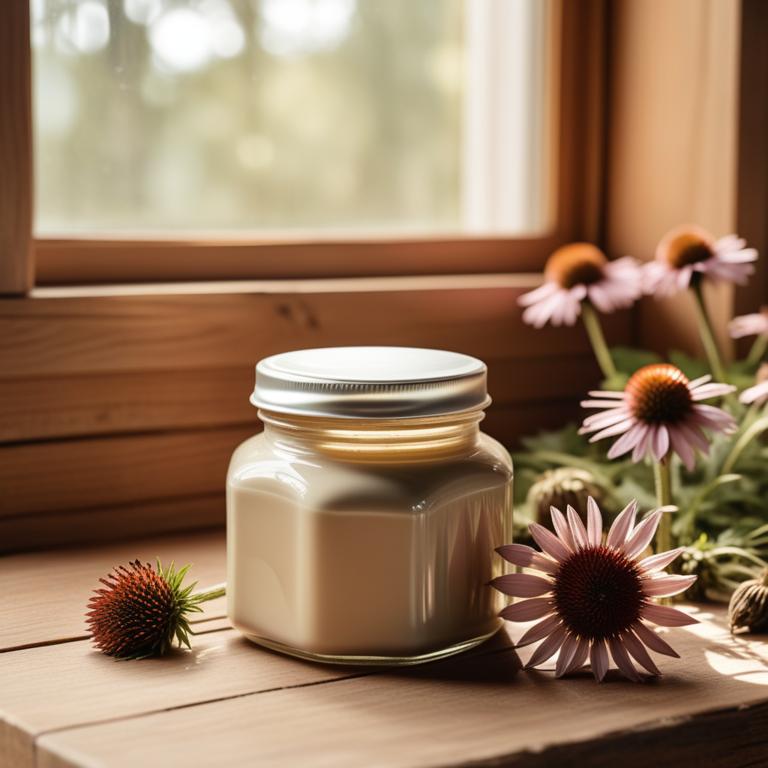
Echinacea purpurea creams have been traditionally used to treat the cold sore ailment, which is caused by the herpes simplex virus.
The anti-inflammatory and antiviral properties of this herbal preparation help to reduce the severity and duration of cold sore outbreaks, providing relief from pain and discomfort.
Bioactive constituents such as alkylamides, caffeic acid derivatives, and flavonoids in Echinacea purpurea creams have been shown to exhibit immunomodulatory and antiviral activities, which contribute to its therapeutic effects.
The benefits of using Echinacea purpurea creams to treat cold sores include reduced healing time, lessened severity of symptoms, and a decrease in the frequency of outbreaks, making it a popular natural remedy for this common affliction.
4. Echinacea angustifolia creams
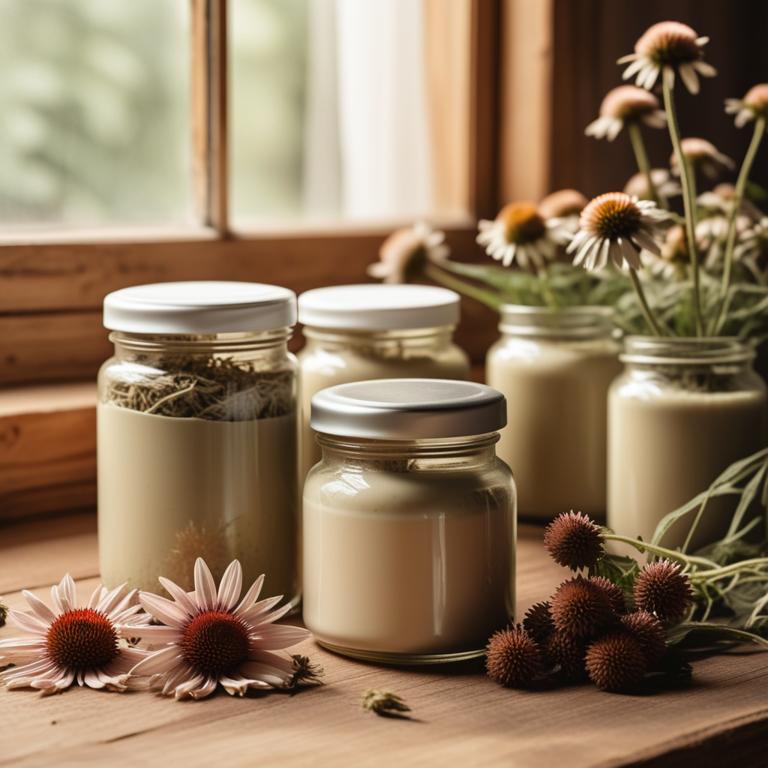
Echinacea angustifolia creams have been traditionally used to treat cold sore ailments, leveraging their anti-inflammatory and antiviral properties to combat the herpes simplex virus that causes the condition.
The herbal preparation helps to treat cold sores by reducing pain and inflammation, promoting faster healing, and shortening the duration of the outbreak.
The bioactive constituents of Echinacea angustifolia, including alkylamides, glycosides, and phenolic acids, contribute to its therapeutic effects by modulating the immune system and exhibiting antiviral activity.
The benefits of using Echinacea angustifolia creams to treat cold sores include reduced pain and discomfort, accelerated healing, and a lower risk of scarring or post-inflammatory hyperpigmentation.
5. Borago officinalis creams

Borago officinalis creams, also known as borage seed oil or starflower oil, have been used to treat cold sore ailments due to their anti-inflammatory and antioxidant properties.
The cream helps to treat this ailment by reducing redness, swelling, and pain associated with cold sores.
The bioactive constituents of Borago officinalis, including gamma-linolenic acid (GLA) and squalene, have been shown to promote wound healing and reduce inflammation, thus aiding in the treatment of cold sores.
The benefits of using Borago officinalis creams for cold sore treatment include reduced healing time, less painful sores, and a lower risk of scarring.
6. Symphytum officinale creams
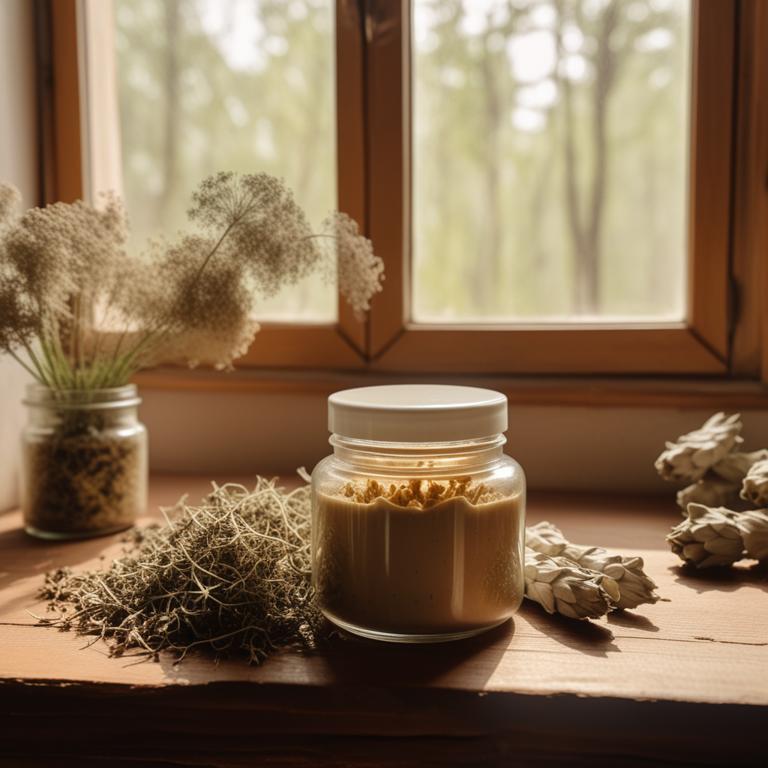
Symphytum officinale creams, derived from the comfrey plant, have been traditionally used to treat cold sore ailments due to their anti-inflammatory, antiviral, and immunomodulatory properties.
The bioactive constituents, such as allantoin, rosmarinic acid, and triterpenoids, help to accelerate wound healing, reduce inflammation, and exhibit antiviral activity against the herpes simplex virus, which causes cold sores.
The herbal preparation helps to treat cold sores by promoting the healing of affected skin, reducing the duration and severity of outbreaks, and alleviating symptoms such as pain and itching.
The benefits of using Symphytum officinale creams to treat cold sores include rapid symptom relief, reduced scarring, and the potential to prevent future outbreaks, making it a popular natural remedy for this common condition.
7. Hypericum perforatum creams
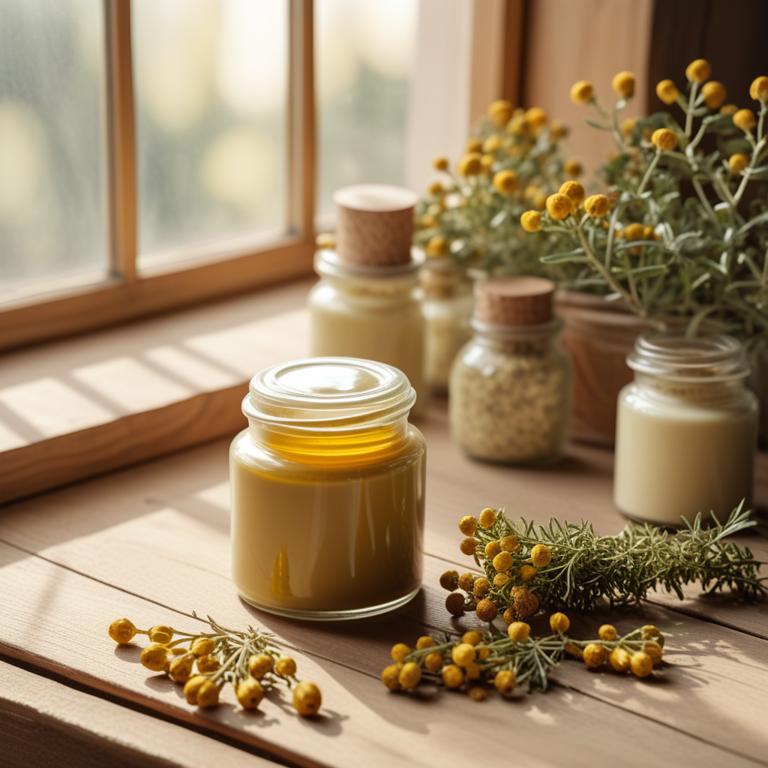
Hypericum perforatum creams, derived from the St. John's Wort plant, have been traditionally used to treat cold sore ailments due to their anti-inflammatory, antiviral, and wound-healing properties.
These properties help to reduce the severity and duration of cold sore outbreaks by soothing irritated skin and promoting the healing process.
The bioactive constituents, including hyperforin and hypericin, exhibit potent antiviral activity against the herpes simplex virus, which is responsible for cold sores.
Regular application of Hypericum perforatum creams can help to alleviate the symptoms of cold sores, reduce the risk of secondary infection, and promote a faster recovery, making it a popular natural remedy for this common condition.
Related Study
According to "BMC veterinary research", Hypericum perforatum creams for cold sore may be beneficial due to its broad-spectrum antibacterial and antifungal effects, including against antibiotic-resistant bacteria.
8. Calendula officinalis creams
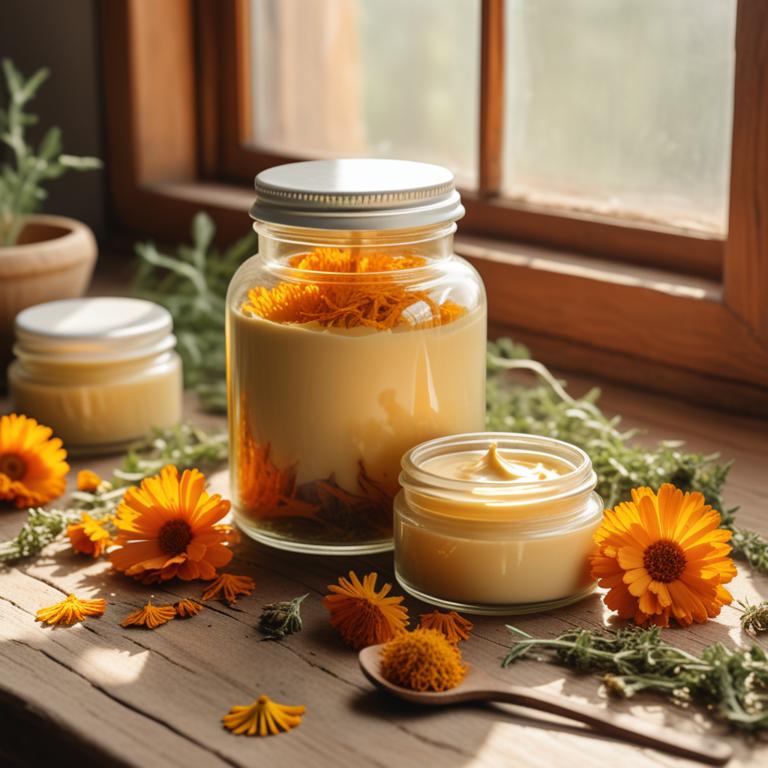
Calendula officinalis creams have been used for centuries to treat the cold sore ailment, leveraging the plant's anti-inflammatory and antimicrobial properties to soothe and calm the affected area.
The bioactive constituents of Calendula officinalis, including triterpenoid saponins and carotenoids, help to reduce inflammation and promote wound healing, making it an effective remedy for cold sores.
By applying Calendula officinalis creams to the affected area, individuals can experience rapid relief from pain and discomfort, as well as a reduction in the duration and severity of cold sore outbreaks.
The benefits of using Calendula officinalis creams to treat cold sores include natural, non-irritating ingredients, ease of use, and a reduction in the risk of scarring and prolonged healing times.
Related Study
According to "BMC veterinary research", Calendula officinalis creams have shown wound-healing properties, and considering the antibacterial and antifungal effects of Calendula officinalis, it could be a potential option for the treatment of skin diseases, including cold sores, in humans.
9. Achillea millefolium creams
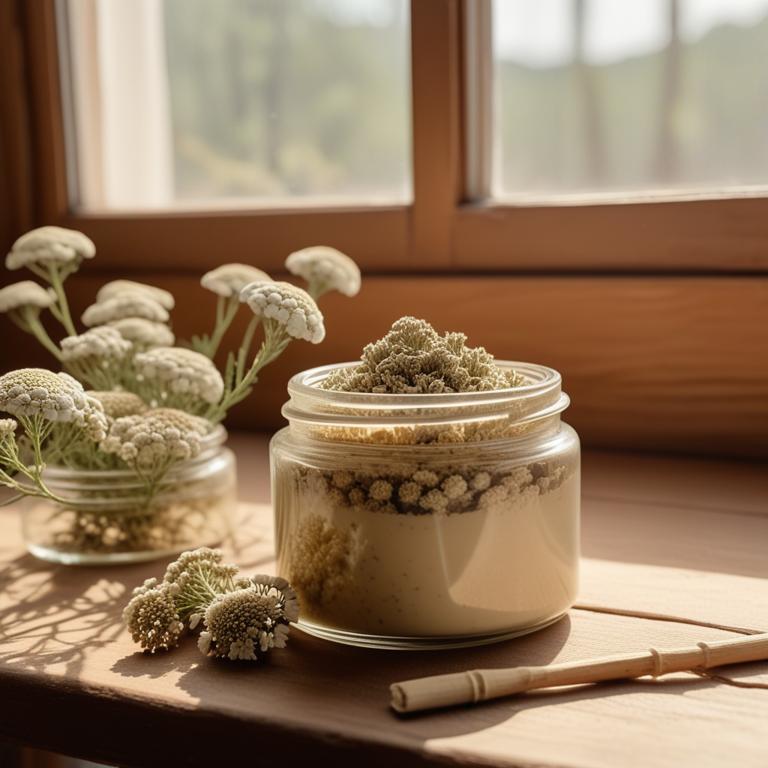
Achillea millefolium creams, derived from the leaves and flowers of the yarrow plant, have been traditionally used to treat the cold sore ailment.
The anti-inflammatory and antiviral properties of Achillea millefolium creams help to reduce the severity and duration of cold sores by soothing and calming the affected area.
The bioactive constituents of Achillea millefolium creams, including flavonoids, sesquiterpenes, and phenolic acids, contribute to their therapeutic effects by inhibiting the replication of the herpes simplex virus and promoting wound healing.
The benefits of using Achillea millefolium creams to treat cold sores include reduced pain, inflammation, and scarring, as well as faster recovery times and improved overall well-being.
10. Centella asiatica creams
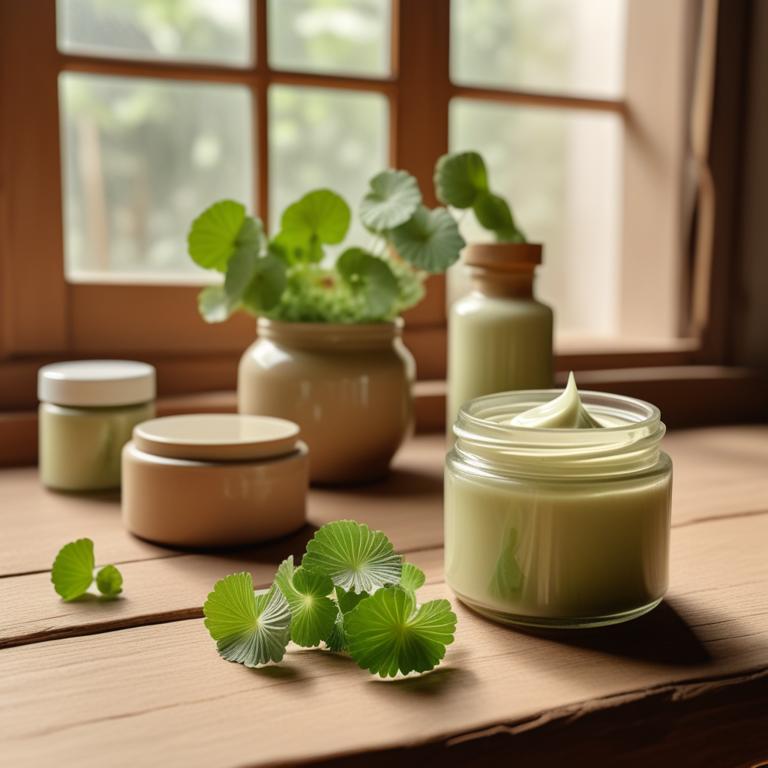
Centella asiatica creams have gained popularity in recent years as a natural remedy to treat cold sore ailments.
The anti-inflammatory and antiviral properties of this herbal preparation help to reduce the severity and duration of cold sore outbreaks, making it an effective treatment option.
The bioactive constituents, including triterpenoids, flavonoids, and saponins, work together to accelerate the healing process, reduce pain and discomfort, and prevent the spread of the virus.
The benefits of using Centella asiatica creams to treat cold sore ailments include reduced recovery time, fewer outbreaks, and a lower risk of scarring, making it a valuable addition to any skincare routine.
11. Cinchona officinalis creams
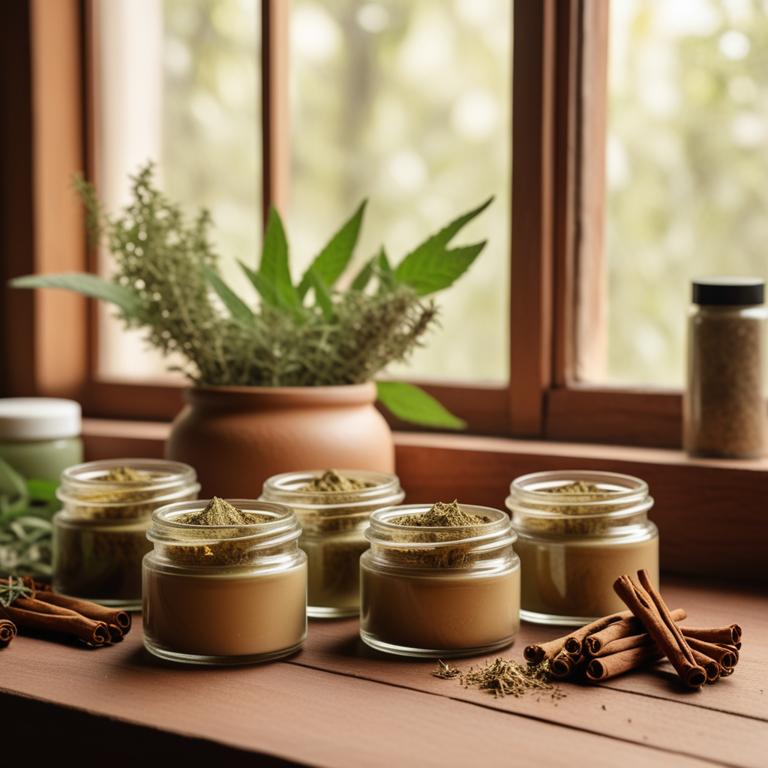
Cinchona officinalis creams are a natural herbal preparation used to treat the cold sore ailment, which is caused by the herpes simplex virus.
This preparation is rich in bioactive constituents such as quinine, which has anti-inflammatory and antiviral properties, helping to reduce the severity and duration of cold sore outbreaks.
The quinine in Cinchona officinalis creams helps to inhibit the replication of the herpes virus, reduce pain and inflammation, and promote healing of the affected area.
The benefits of using Cinchona officinalis creams to treat cold sores include reduced recovery time, fewer recurrences, and a lower risk of complications, making it a popular natural remedy among those who suffer from this condition.